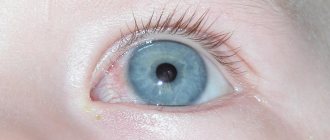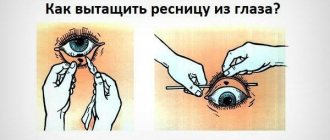Shopping always evokes vivid emotions: pleasant aromas, beautiful displays, designer items, the opportunity to please yourself with new clothes - all this allows you to forget about your problems for a while and immerse yourself in the luxury of the fashion world. But there are people for whom shopping has turned from a harmless hobby or a way to have a good time into a real addiction.
Victoria Orlova, a psychologist specializing in emotional disorders, told us about what causes the need to constantly shop and whether shopaholism can be cured.
What is oniomania
Shopaholism, or, as it is also called, oniomania, is not a separate psychological disease, but rather a type of emotional disorder.
Emotional distress occurs against a background of anxiety or depression, when a person perceives some life circumstances in a negative light. This causes long-term stress. As a result, we may develop various addictions and bad habits: dependence on alcohol, drugs, cigarettes. The same applies to shopaholism.
Interestingly, women are more susceptible to oniomania than men. The stronger sex is more likely to experience addiction to alcohol, nicotine, and computer games. Although there are also shopaholic men.
Shopaholism as a bad habit
People are a society of consumers. Everyone makes purchases, but not everyone does it rationally. However, when all the free money is spent on another unnecessary thing with the words “let it be,” then this is a disaster. What is shopaholism and how to define it?
Shopaholism (oniomania) is a person’s dependence on an irresistible desire to buy everything, without special need, for the sake of the purchasing process itself. Psychologists say that this condition is a disease.
To check if you have an addiction, we recommend taking a short test. You may be considered a shopaholic if:
- often go shopping aimlessly;
- you buy something you absolutely don’t need;
- you can spend hours telling your friends about your purchases;
- when you have money, you feel a frantic desire to quickly spend it on the next not particularly necessary purchases;
- you become depressed without visiting shopping centers;
- You are overly interested in fashion magazines, constantly scrolling through ideas for new purchases in your head.
The above symptoms are considered signs of being addicted to shopaholism. Don't worry if you answered yes to most of the questions. There are a lot of such people. And this is due not only to excess supply on the sales market.
How addiction is formed
The need to constantly make purchases arises gradually. For example, while under stress, a person might walk into a store and experience the relief of shopping for the first time. At the same time, his level of serotonin, the hormone of happiness, increased, and the brain, based on the principle of a conditioned reflex, remembered this.
Shopping becomes a kind of ritual, and the brain gets used to receiving relief and pleasant emotions through shopping. The next time a person begins to experience negative emotions, the subconscious will immediately tell you where to go to get a release.
Shopping is like a drug
The first to discover a new disease was in 1915 the famous German psychiatrist Emil Kraepelin , the “discoverer” of schizophrenia and manic depression. He noticed that the new illness is very similar to other types of addiction and shopaholics experience approximately the same as drug addicts.
How do you understand that a woman’s normal passion for dressing up or the understandable desire of the stronger sex to have a cool phone, player and other fashionable things has developed into a disease? It's quite simple, because shopaholism has clear symptoms. Here they are:
- going to a store without the intention of finding something specific there, but just to simply pass the time;
- an uncontrollable desire to buy something “just because”, without imagining how this thing will be used;
- disappointment and anger after a purchase that turned out to be too expensive or unnecessary;
- constant discussion of the purchased product;
- depressed mood due to the inability to go to the store and an instant increase in vitality upon entering it.
Internet shopaholism
Shopaholism is spreading due to the availability of online shopping. Open tabs, constant email reminders, beautiful pictures - all this allows you to quickly make purchases.
The big problem is that purchases are made by non-cash payment. When we constantly pay with a card, our expenses double: we don’t feel like we’re giving away money. Therefore, it is best to pay in cash: we feel sorry for parting with it, and we begin to think more rationally.
What could be the reason
One of the most common reasons is the need for positive emotions. Shopaholism is formed against the background of a feeling of inner emptiness, and with the help of purchases a person tries to fill it.
People often relieve stress when they have problems at work or tension in their relationships. A situation may arise when a woman wants to punish her partner with the help of shopping. Then she goes to the store and spends all the money from the card to which his account is linked, in order to take revenge for his bad attitude.
Another reason is the desire to assert oneself with clothes from luxury brands and expensive accessories, and in this case problems with self-esteem are usually observed.
People who are experiencing financial difficulties often become shopaholics. Against this background, stress develops, which they try to cope with through shopping. They take out loans for purchases, which leads to dire consequences.
The opposite situation is also possible – the desire to feel control over one’s own life. When making expensive purchases, people try to convince themselves that they can afford to buy an expensive, albeit unnecessary item.
How to get rid of shopaholism: ways
How to get rid of shopaholism?
Of course, if you want to spend money, you can go to a psychotherapist who, for a decent amount, will help you save yourself from addiction. But, if your shopaholism is not too strong and does not harm your finances, then you can cope with it yourself. You just need to change some attitudes.
- Attitude towards yourself
Think about what you really want to achieve when you go shopping. Self-esteem, beauty, joy or something else? As long as the problem persists, it will force you to spend money. And if you begin to eradicate only the effect, but do not understand the causes, then you will end up with another addiction. For example, bulimia, which is manifested by uncontrolled consumption of food.
Next, think about how you can further improve your self-esteem, good mood and self-satisfaction. Maybe you know how to create beautiful clothes yourself? Or do you dream of having a dog with whom you will feel needed? Maybe you should change your occupation and money will no longer be an important necessity?
Be sure to share your difficulties with your loved ones. They may not understand your problem, but until you try, you won’t know. State clearly and briefly what stores do to you, and also talk about what actions you expect from your loved ones. For example, take all the cards, avoid the shopping center if you are together, and so on.
Create a daily routine for yourself. Try to occupy your time as much as possible so that there is no need to sweeten your mood with shopping. Try creating your own blog, organizing an auction of things, becoming a stylist, and so on. Perhaps this will allow you to find yourself and fans.
- Attitude to things
Attitude to things
To understand how bad things are, take out all your clothes and look at how many there are. Try each item on and see if you like it. Will you wear all this? Maybe it would be better to donate some, sell them, or even return them to the store? Take a photo of each item, and then put up a visual collage that will help you understand what you can wear and with what.
For example, place jeans in the center, and around all the possible things that can be worn with them. You might even describe situations where they might be useful. Moreover, make a list of 20-25 things that will be essential for you this season, and do not deviate from this number.
- Attitude towards shopping
You won't buy 5 cartons of milk, will you? So you don’t need several pairs of sneakers, especially since you don’t even wear them. To avoid having another extra pair, make a list of what you need in advance and stick to it. Think about what purchases you definitely need. After all, for some you will have to save for a very long time.
Shopaholics have a great weakness for sales. There is only one solution - it is important to sensibly assess whether you need the things offered. The same lipsticks. Why do you need a new one if you still have 7 of them at home? There is no need to stock up, because the end of the world is not coming.
There is no point in chasing new products. What is fashionable now will no longer be relevant in a few months. So, if you want to buy a very expensive camera that has just appeared, then it makes sense to wait a few months until the cost becomes lower. Also, when you feel the urge to shop, put your items aside for a couple of hours at the checkout. Perhaps you yourself will change your mind, and if not, then call someone with you who will soberly assess the situation and dissuade you from purchasing it. So you can enjoy the money you save.
Learn to shop at thrift stores, flea markets and flea markets. So for little money you can put together a great wardrobe.
- Attitude to money
Attitude towards money
It may seem to you that your parents get money easily and there is always a lot of it. But try to look at their work by asking to visit them for a day. Or start working yourself, especially if you are already 18. This way you will quickly learn to value money, and maybe even save.
Try to collect receipts and summarize the results at the end of the month. Consider not only your expenses, but also your parents if they help you. This way you will be able to understand that you have started to spend significantly more than you earn, and you will already try to restrain yourself in some way.
If you just like to spend money, then it is better to give it to charity. Instead of purchasing unnecessary things, it is better to buy toys for an orphanage or send them to a children's aid fund. And always remember that your approach to money should be reasonable.
How to understand that you have a shopaholism
There are several criteria that will help distinguish an ordinary person who just loves to shop from a shopaholic.
- A healthy person clearly understands why he goes to the store and what he wants to buy.
- He only buys what he really needs.
- He won't be upset because he couldn't get to the store today.
- He can easily leave the store without making a single purchase.
A shopaholic will visit stores aimlessly: he has a need to just be inside. He will buy both necessary and useless things, while he feels an emotional uplift and gets rid of fatigue and tension.
If you see that your loved one spends all his time in shopping centers or on online shopping sites, he accumulates loans and credits, he constantly borrows money and his closets are bursting - this is a reason to sound the alarm and try to help cope with the disorder.
How to recognize shopaholism: signs
Signs of Shopaholism
Not every person who likes to spend money is a shopaholic.
There are many symptoms that help recognize shopping addiction:
- When you go to meet your girlfriends, to the cinema, to the skating rink or to the park, you always go to the shopping center for a couple of minutes. You have no special hobbies, and therefore you are ready to spend hours looking at shop windows.
- If you are asked to tell you what is the best way to combat a bad mood, then you will say that you need to buy something every day. After all, you yourself use this method.
- As a rule, you spend much more than you plan, and therefore hide the real cost of things from your loved ones.
- You go shopping on your own, alone, so that no one sees you buying everything you see with a discount price tag on it.
- You have several identical T-shirts, three sneakers of the same model and similar handbags. But you cannot explain why you need the same things.
- You can't save up for a new phone or a trip you've been dreaming about for a long time. After all, all the money you save requires you to spend it.
How to recognize shopaholism?
- First, you ask the sellers to show you a lot, and then you feel ashamed that their diligence is not justified, and therefore you definitely leave with the purchase.
- You borrow from anyone you can, and every time you come up with fantastic reasons. And you have emptied your entire credit card and are constantly trying to pay in installments.
- When you've been to the store, it's like a failure. You don’t even understand where you suddenly spent all the money.
- Shopping brings you joy, but already at home it all goes away and you immediately start thinking about who to give it all to.
- In your closet you can often find things that do not suit your style and style.
- You don't think you have any problems. You're just a girl and that's all.
If you have at least two of the above points, then you are to some extent a shopaholic. You are constantly haunted by the desire to buy something, and it doesn’t even matter what the prices are, whether there is a need and whether there will be consequences. This addiction is comparable to gambling addiction, alcoholism, anorexia, and so on. You obviously didn't expect it to be so serious.
How to get rid of shopaholism
A person usually realizes that he has become a shopaholic. Some are even proud of it and tell their friends and acquaintances. But at the same time he feels that he cannot do anything in this situation. This is why the myth arose that oniomania cannot be treated - they simply do not try to treat it and live with this problem.
People turn to a psychologist when they develop depression due to shopaholism: due to the fact that too much money is spent on unnecessary things, scandals begin in the family, and debts need to be repaid. And this is already a very advanced stage, which requires the help of a specialist.
At the same time, it cannot be said that the person himself is not able to cope with the problem. Even when working with a psychologist, the patient must first of all cope on his own. Psychotherapy is not a panacea, but with a psychologist, the recovery process will proceed much faster.
First of all, during therapy you need to find the cause of addiction and learn to satisfy your needs in an environmentally friendly manner. Any addiction is formed due to unrecognized needs. Someone may eat away their problems, relieve stress with alcohol and shopping, but in fact want love or recognition. And here it is important to understand what need you have not fulfilled. When you learn to recognize your desires and realize them, your shopping addiction will disappear.
How to get rid of shopaholism yourself - simple recommendations from psychologists
Persons who realize that they have poor self-control when visiting shopping centers can follow simple rules:
- Before leaving home, make a shopping plan and strictly follow it;
- take small amounts of money with you;
- clearly track what your savings were spent on (you can even save checks, receipts, and keep track of cash expenses);
- minimize the use of credit cards (“other people’s” money is easier to spend, but it’s difficult to return it later);
- always pay in cash.










